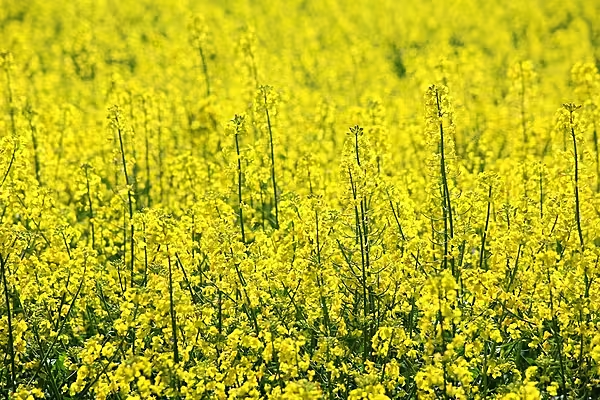French farmers destroyed a total of 18,000 hectares of rapeseed, more than double the area initially expected, following the discovery of a non-authorised genetically modified organism (GMO) in seeds, German group Bayer said.
Bayer announced in February that farmers in France and Germany were turning over thousands of hectares of rapeseed crops after traces of a GMO variety grown in Canada were detected in batches of seed sold in Europe.
GMO crops are widely grown across the world, but remain controversial in Europe, where very few varieties are authorised for growing and countries like France have completely outlawed their cultivation, citing environmental risks.
Precautionary Removal
A spokeswoman for Bayer, which had previously estimated around 8,000 hectares of rapeseed would be lost in France, said on Friday the area had reached 18,000 hectares after further precautionary removals of crops, for example when there were doubts over the traceability of seeds.
The latest figures in Germany showed the area of rapeseed destroyed there was 2,150 hectares, slightly lower than initial expectations of 2,500-3,000 hectares, Bayer said on Monday.
The destruction was carried out before the flowering of crops, which could have led to the spreading of the non-authorised GMO variety.
The affected seed was sold under the Dekalb brand, developed by US group Monsanto which was acquired by Bayer last year.
Compensation To Farmers
Bayer has offered compensation to farmers for the loss of this year's crop and an obligation not to grow rapeseed next year to avoid re-emergence of rapeseed containing the GMO strain.
Bayer said the cause of the contamination of the seeds was still unclear and an internal investigation was continuing.
The seeds were produced in Argentina in a GMO-free zone, Bayer said, adding that the South American country had not authorised cultivation of GMO rapeseed nor conducted field trials of such varieties.
The crops lost in France and Germany are relatively small given a rapeseed area of around 1 million hectares in each country.
But they will add to a sharp decline in area this year after drought led farmers to scale back sowings.
News by Reuters, edited by ESM. Click subscribe to sign up to ESM: European Supermarket Magazine.














